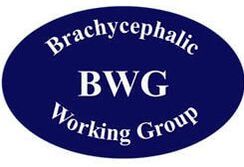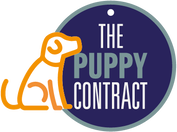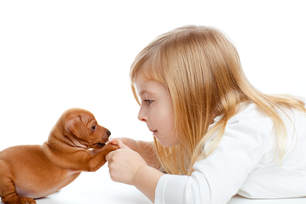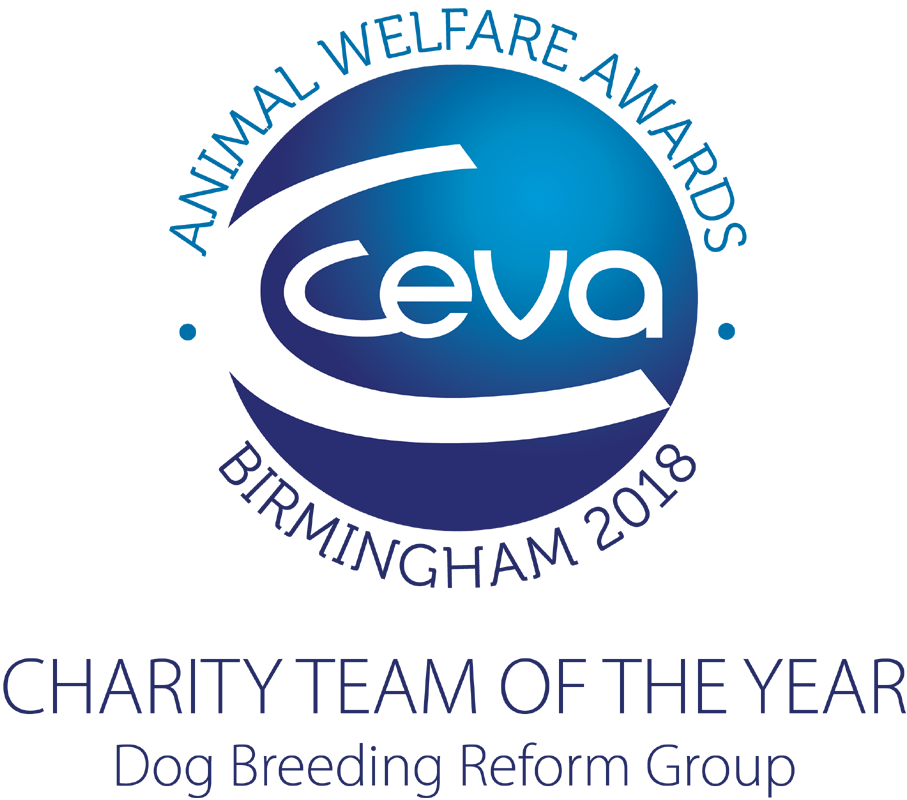Guide to Buying a PuppyWelcoming a dog into your life and into your home can be one of the most rewarding and enriching experiences you will ever have. Dogs are good for us. They give us unconditional love, loyalty and a sense of fun. They teach us to live in the moment and enjoy the simple things in life. In return we should give them the care, support, and enrichment they need to live life to the full as a dog.
Before embarking on this commitment, consider the following: |
Making the decision
A dog is a huge responsibility and a long-term commitment. Many people buy a dog and then find that they can’t cope physically or financially. Far too many dogs are surrendered to overflowing rescue centres. Dogs need more than a roof over their head and food. They need exercise, opportunities for play, training, grooming, human and canine company, mental stimulation, love, and care when they are ill. They are expensive to keep and insurance may be costly. Veterinary bills are even more costly when you have no insurance. It is not advisable to have a dog if you are out at work all day unless you can ensure their needs are met while you're away. In these circumstances you will need to think about how to arrange for dog walking and social interaction for your dog during the daytime. If you like holidaying abroad, you will need to include the cost of kennelling your dog while you are away. If you want to take your dog abroad, there is the cost of fulfilling pet passport regulations.
Choice between a puppy and adult dogThink carefully about whether you want a puppy or an adult dog. Puppies make a lot of mess and need a great deal of attention and training. That cute puppy very soon becomes an adult dog. Many breeders have adult dogs which they want to sell on, and there will be many adult dogs available in rescue centres which can make wonderful pets.
Do research on the dog breed or type
Do as much research as possible into your chosen breed or type of dog. Even breeds without extreme physical characteristics may be prone to some breed-specific genetic diseases. The severity and frequency of these diseases varies between breeds. Consult your local veterinary practice about breed-related health, lifestyle needs, and suitability of temperament for your lifestyle. Read the relevant breed club’s website for information, but note that these will vary in quality and detail about health issues. Some breed clubs have information about specific health issues in their breed in a Breed Health and Conservation Plan (BHCP), written jointly by breed clubs and the Kennel Club. A puppy buyer should request access to the BHCP for their chosen breed.
Information on dog breeds can be found here: Breed Health Information Also here: www.dogbreedhealth.com Make sure your choice of dog suits your lifestyle
It’s very important to choose a dog to suit your lifestyle. Different types of dogs have different exercise, activity and care requirements. Some dogs are less suited to town life or homes without gardens. For example, some large dogs and many working dogs will not be best suited to life in a city. No dog should be left alone all day or without human contact. All dogs need love, exercise, training, grooming and mental stimulation.
Duty of care
Bear in mind that you have a ‘duty of care’ for your dog under the Animal Welfare Act (AWA) 2006. According to the AWA you must ensure that you meet the following needs that a dog has:
Stop and think before buying a flat-faced dog
Avoid extreme sizes and shapesOn animal welfare grounds, think carefully before choosing a giant breed as these have shorter life spans, are prone to cancer, heart problems, joint problems and other health issues due to their extreme size. They are also very expensive to keep and care for. Similarly, avoid miniature or ‘handbag’ breeds of dog which are prone to poor teeth, orthopaedic and spinal problems and hydrocephalus.
Also on welfare grounds, avoid breeds which have disproportionately short legs (dwarfism); excessive folds of skin which are prone to infection; long ears (painful if stepped on); too much hair (uncomfortable for the dog and difficult to groom); poor eyelid anatomy (which may result in weepy and sore eyes); disproportionately long backs (prone to disc problems); or very large heads. Avoid dog breeds that have flat faces (brachycephalic). These dogs can have difficulty breathing, over-heat easily, and often have soft palate and other airway issues which may require corrective surgery. All of these characteristics prevent a dog from enjoying a good quality of life. What you should definitely do
Use the Puppy Contract
You are strongly advised to buy from a breeder who uses (or is prepared to use) the Puppy Contract which is made up of a Contract for Sale and Puppy Information Pack (PIP) and may be downloaded at www.puppycontract.org.uk This contract is produced by the Animal Welfare Foundation (AWF) and is the one we recommend.
Find an ethical breeder who puts the welfare of his/her breeding dogs and puppies firstFinding a good breeder is challenging but well worth the time and effort it takes.
Many prospective puppy seekers will search online as the easiest option but this needs to be done with great care. The golden rule is to see the puppies with their natural mother and visit the breeder's home at least twice. Never buy a puppy through a third party or by meeting someone at a motorway services or accepting delivery of a puppy to your home. Buying a dog or puppy through a third party is now illegal in the UK (Lucy's Law) Whether you choose a crossbreed or purebred /pedigree puppy, health screening and DNA testing information about both parents is essential One way of finding a suitable puppy might be to approach the national breed club of your chosen breed and inquire about available litters of puppies. Some popular crossbreeds also have national clubs, for example the Cockapoo Club of GB. Don't assume that a crossbreed is automatically healthier than a purebred dog, but a first generation cross where both parents have been health screened may be. Visit two or three breeders before making a choice and treat the first visit as a ‘fact finding’ visit. Never fall for the line, 'If you don't take him now he may not be here tomorrow.' Visiting a breeder Visit a chosen breeder a number of times over a period of time to see the puppy regularly with its mother. Notice how puppies and their mother interact with each other and how their development, habituation and social skills are developing. See the puppies’ pedigree
When purchasing a pedigree dog ask to see the five generation pedigree certificate of the dog before agreeing to purchase. If the same name appears more than once on the pedigree it is a sign of a high level of inbreeding. Ask the breeder for the coefficient of inbreeding (COI) of the puppies and compare it to the breed average COI. This can be checked on the Kennel Club website or on the breed pages of the Dog Breed Health website. (Ref: ‘A Beginners Guide to COI‘)
See the health screening certificates
Check that the breeder has done all of the important health screening on the parents of your puppy. Ask to see the relevant documentation to prove that both parents of your puppy are healthy and fit to breed. Find out what a genuine certificate looks like by visiting the BVA/KC Canine HeaIth Schemes website: www.bva.co.uk/Canine-Health-Schemes/ and find out at what age a dog should be tested and/or re-tested. It is advisable to see this paperwork before going to see the puppies. It is so easy to let your heart rule your head once you have seen a puppy. If a breeder has not carried out all the relevant health tests, ask them to explain why. Breed specific health screening and DNA tests may be seen at www.dogbreedhealth.com Breed Information Pages.
Also the Kennel Club's website: www.thekennelclub.org.uk/search/breeds-a-to-z Ask the breeder about Estimated Breeding Values (EBVs) for Hip Dysplasia (HD) and Elbow Dysplasia (ED)HD and ED are painful diseases of the hip and elbow joint and many medium to large size dog breeds suffer from either or both of these. EBVs are a modern and more accurate way of assessing the genetic risk an animal has of passing on the genes for complex diseases to its offspring. EBVs are calculated from the results of the HD and ED Canine Health Schemes and using pedigree data. An EBV is either a positive or negative number with the breed average set at zero. A negative number means that a litter of puppies has a lower genetic risk than the breed average. A positive number indicates a higher than average risk of disease. The EBVs for a litter of puppies would be based on the average of their parents' scores.
A confidence rating is also rated as a percentage. For more information about EBVs watch the video below in which Hannah Capon (Canine Arthritis Management CAM) talks to Dr Tom Lewis, Quantitative Geneticist for the Kennel Club about the genetics of Hip and Elbow Dysplasia. They also discuss the environmental factors which can modify an individual dog's degree of affectedness. Hip and Elbow Dysplasia can cause a dog to suffer pain and disability for many years of its life. As a puppy buyer you can play your part in reducing the prevalence and severity of these diseases by knowing which questions to ask a breeder. This will drive change. See the puppies with their mother (dam) and siblings. See the father (sire)
It is essential that you see the puppies interacting with their mother and in a suitable home environment where they have had a chance to be properly socialised with humans and other animals. Never accept a puppy which has been taken from its mother at less than eight weeks old. The breeder must also show that the mother’s comfort and welfare is paramount. Ideally you should meet your puppy’s father as well to make sure that his temperament (as well as the mother’s) is sound. Note that in larger scale breeding establishments adult dogs will be accustomed to kennels. However, the pups should have interaction with humans several times a day from birth and at about five weeks be brought into the house for a couple of hours on a regular basis. Puppies need to be accustomed to a variety of household sounds (for example, vacuum cleaner, washing machine, dishes clattering, loud music, noisy children, thunder and fireworks) from a very early age. Good breeders will have habituated puppies to a variety of sounds and may send a puppy home with a sound CD as part of the puppy pack. Various CDs and downloads are available so that the process can be continued by a new owner. You can find further information about socialising, habituating and training your puppy from the Animal Behaviour and Training Council (ABTC),the Association of Pet Behaviour Counsellors (APBC) and the Association of Pet Dog Trainers (APDT). Puppies should be appropriately introduced to children and cats as well so that they are not fearful of them in later life.
When seeing puppies for the first time they should be playful and eating well. Check that the eyes are clear and bright, there is no diarrhoea, and the coat is clean. A good breeder will help you to choose a puppy whose temperament will suit your lifestyle and family circumstances. To avoid an impulse purchase, visit several breeders and litters before choosing your puppy. Inform each breeder that you are doing this. |
Vaccinations and vet check
It is essential that your puppy is checked by a veterinary surgeon for any obvious abnormalities or health problems. Good breeders will already have done this. They will also ensure that your puppy has been given its first round of vaccinations (at around 8 weeks) for canine distemper, canine parvovirus, kennel cough, leptospirosis, and infectious canine hepatitis. Your puppy should also have been wormed. The second round of vaccinations may be your responsibility (depending on the age of the puppy at purchase) and your veterinary practice will advise you on this.
Microchip
It is a breeder’s legal responsibility to microchip the puppies at eight weeks before they are passed on to a new owner. The breeder should be registered as the first owner on the microchip. After purchase an owner must re-register the microchip details under their name. (It is important that the breeder’s details are retained on the microchip database to enable traceability and accountability at any time in the future).
Breeder’s accountability
A good breeder is willing to have responsibility for the dogs he/she breeds, for life. A good breeder will offer to take a dog back if there is a change of circumstances for the owner. A good breeder will keep a record of the health of any dogs they have bred. Ideally they will also record their age at death and cause of death.
Expect the breeder to ask you questions about your lifestyle
Expect the breeder to ask you many questions. He or she needs to know if yours would be an appropriate home for one of their pups. If she/he doesn’t ask questions about your home and lifestyle, they are not a responsible and caring breeder.
A good breeder will offer to give whatever support you may need in future. A good breeder will offer to take the puppy back no matter what the issue and be prepared to re-home any dog at any age that he/she has bred. Ideally, a breeder should visit your home to make sure it is suitable for the type of dog in question. If this is not possible they should ask for photographs of your home. If you have a garden, it is essential that it is secure and that your dog will not be able to get out. Ask for the breeder’s policy on problems which may arise after purchase
Ask what the breeder’s policy is on any health problems that may arise in a puppy soon after purchase, or genetic problems that may arise much later. A good breeder will ask to be kept informed of all relevant health issues and will take these into account in future breeding plans. Check if the puppies come with free temporary pet insurance.
Buying from a licensed breeder
All the above applies regardless of the type of breeder you buy your puppy from (ie, an unlicensed breeder who breeds less than three litters of puppies a year or a local authority licensed breeder who breeds more than three litters a year). In addition.
You should check the accommodation and welfare of the adult dogs who are being used for breeding. If you are not allowed to see the living quarters of the adult dogs, walk away. Local Authority Licensed Breeder (Higher Standard) Note that a local authority (LA) licensed breeder can be excellent. Licensed breeders are regularly inspected by the LA Licensing and/or Animal Welfare Inspector accompanied by an independent vet. Licensed breeders who have been awarded the Higher Standard must include information about the genetic health issues of both parents; use all relevant health screening schemes and DNA tests; produce health test results certificates; use coefficients of inbreeding (COI) and consider breed genetic diversity. Mothers must not give birth to more than four litters in their lifetime. Breeders must use a Puppy Contract which includes undertakings and warranties around health and puppy socialisation. Requirement for a LA Licence Note also that even if a breeder breeds fewer than three litters a year, but is breeding puppies as a business, they should have a local authority licence. The price of puppies now is such that many more breeders than previously are considered to be running a business and therefore should be licensed. Do not take children on an initial visit to the breeder
Do not take children with you on an initial visit to a breeder and to view the puppies. It is incredibly difficult to walk away without a puppy if you have children with you.
Warning !
Note: tail docking and ear cropping
On welfare grounds tail docking and ear cropping are illegal in the UK. There is an exemption for some working dogs regarding tail docking, otherwise these are illegal practices and should not be encouraged. Any breeders who try to sell dogs which have been docked or cropped are operating illegally
Walk away and report
If you are in any doubt about the welfare standards of a breeder, be prepared to walk away and consider reporting the breeder to the Local Authority Trading Standards or Animal Welfare Department, or a Welfare Charity such as the RSPCA.
Owning and caring for a dog is one of the most rewarding experiences you can have. Making the right choice in the first place will ensure that it is. |
|
PDF leaflet download:
'Advice for Puppy Buyers' |
| ||||||
Dogs are for life. Think carefully. Choose wisely. Love deeply.
Canadian Federation of Humane Societies
Canadian Federation of Humane Societies













